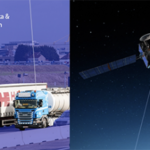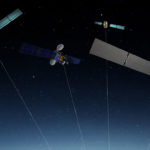On 6 April, the GNSS world marks Beacon Awareness Day (406 Day), a day intended to remind Search and Rescue 406MHz beacon owners to test their beacons, check their batteries and update their Cospas-Sarsat or National Oceanic and Atmospheric Administration (NOAA) registration. Started in 2013 by US beacon manufacturer ACR Electronics, the day is also an opportunity to raise awareness on the benefits and responsibilities of owning such 406 MHz beacons as Emergency Position Indicating Radio Beacons (EPIRBs) and Personal Locator Beacons (PLBs). Perhaps most importantly, 406 Day is a chance to share the stories of those whose lives were ‘saved by the beacon’ and to encourage others to #getabeacon. Read more…
Category Archives: Galileo Services
Galileo Search and Rescue (SAR) Service
Search And Rescue (SAR) operations involve locating and helping people in distress. Launched as part of the Galileo Initial Services, Galileo is the first GNSS constellation offering global SAR capability. The service will be available at sea, in the mountains, across the desert and in the air inside the Galileo/SAR Service Coverage area, this essential Galileo service helps operators respond to a distress signal faster and more efficiently. Read more…
Galileo Search and Rescue service ready for green light!
The Galileo Search and Rescue (SAR) service is Europe‘s contribution to the international emergency beacon locating system called COSPAS-SARSAT. This essential Galileo service has the potential to dramatically reduce the time to locate and reach people in distress on sea and land. The 2017 Munich Satellite Navigation Summit saw a dedicated session that outlined the potential impact of the full Galileo SAR service.
Session chair Xavier Maufroid of the European Commission welcomed participants to the first ever discussion of Galileo SAR at a Munich Summit by screening a preview of the service’s launch video. The service itself was officially launched on 6 April 2017 – a date chosen to highlight the COSPAS-SARSAT 406 MHz signal. Read more…
The shift towards a multi-constellation GNSS environment
With the launch of Galileo Initial Services and the availability of numerous Galileo-enabled chipsets and receivers, users are benefiting from the stronger GNSS performance that a multi-constellation environment provides.
As the GSA’s GNSS Market Report shows, the global GNSS market remains dynamic. GNSS is used around the globe, with 3.6 billion GNSS devices in use in 2014. By 2019, this is forecasted to increase to over 7 billion – an average of one device per person on the planet. Smartphones continue to dominate, being the most popular platform to access location-based services, followed by devices used for road applications. Other devices may be less numerous, but billions of passengers, professionals, consumers and citizens worldwide benefit from their application in efficient and safe transport networks, in productive and sustainable agriculture, and in surveying and critical infrastructures. Read more…
Development, Supply and Testing of Galileo Open Service

Because of this, the GSA has launched a new funding opportunity to support the development, supply and testing of a Galileo Open Service authentication user terminal. The Galileo OS will soon provide a Navigation Message Authentication (NMA) feature, known as OS-NMA. Via this feature, users can verify that a navigation message comes from a Galileo satellite and not a potentially malicious source. The Open Service is the Galileo program’s free service for positioning, navigation and timing. Read more…
New Authentication Method to Make Sending False Galileo Signals More Difficult

Galileo Commercial Service Implementing Decision enters into force
Welcoming the adoption of the Galileo Commercial Service Implementing Decision, the European Commission and the GSA confirm that the first generation of Galileo will provide users with High Accuracy and Authentication services. The Commercial Service will complement the Galileo Open Service by providing an additional navigation signal and added-value services in a different frequency band. Unlike the Open Service, the Commercial Service signal can be encrypted in order to control access to Galileo Commercial Services.
“The Commercial Service is unique in that its services are not provided by any other GNSS programme and thus represents a unique opportunity for Galileo to differentiate itself from other systems and offer users an added value to the standard positioning services already available,” says GSA Executive Director Carlo des Dorides. Read more…


